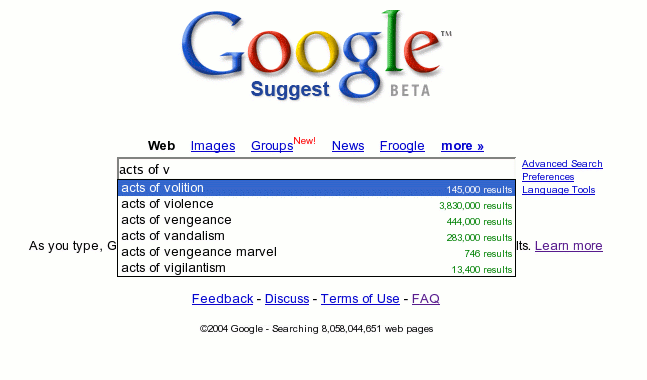I’m in Love With a Writer: A Survival Guide
 Being in a relationship with someone in the same profession is tricky business. While there is a shared understanding of the ins and outs, it can also cause friction, particularly in competitive fields. Dating a writer was one of my bigger relationship snafus—his ego often made our duo a trio.
Being in a relationship with someone in the same profession is tricky business. While there is a shared understanding of the ins and outs, it can also cause friction, particularly in competitive fields. Dating a writer was one of my bigger relationship snafus—his ego often made our duo a trio.
My spouse is a reader but not a writer, so though he has literary knowledge, he is what I call an Innocent Bystander: while he wisely dwells in the science world, he has the arduous task of being involved with a woman in a crazy-pants profession. He patiently waits while I pause movies to talk about the brilliance of the writing. When I publish something new, he promotes it with pride and diligence. And he doesn’t flinch when I’m working on a project and become the Angst Monster I was a few weeks ago.
Sadly, not everyone who ends up loving a writer is as well prepared. For those not-so-lucky Innocent Bystanders struggling with your blessing and your curse, here are some things to help you navigate these treacherous waters.
Being a Muse is a Tough Gig
Not all our characters are based on you. But some of them are. Bits and pieces of you may pop up in our work from time to time. Probably no one knows but you. Or people might speculate as to what is or isn’t biographical. Don’t stress about it. So many things go into creating fiction. Do keep in mind though that telling us a story from your life means you have given permission to mutate it to fit our purposes.
We Protect Our Work the Way Dogs Guard Bones
My poor husband has the ability to turn me into deranged tyrant to rival Joffrey Baratheon through the simple act of reading over my shoulder. What is annoying when we are reading escalates to unforgivable when we are writing.
So make it a rule of thumb to never read over our shoulders. It’s dangerous. We appreciate that you want to read the work, but it’s not the time until we tell you it’s the time. That may be two months or two years. When the time is right, you need to clear your schedule until you have finished it and then be prepared to talk about it until we give you permission to return to your normal life. Bathroom breaks must be scheduled in advance and approved in writing.
You Don’t Fully Understand What We Do, We Don’t Fully Understand What You Do, And That’s Okay
If someone asked my husband what I am currently working on, he’d tell them a novel. He might be able to say it’s set in Texas. That’s about all he’d know, unless he could remember a character name or two from the notes on the wall of our dining room. It wouldn’t be his fault as that’s about all I’ve told him.
He, on the other hand, is going to Switzerland for three months to do biochemical research. When people ask me what type of research, I reply, “Science research? Mushrooms maybe?” Being in a relationship doesn’t mean you have to understand every nuance of the other person’s job. The only requirement is that you both respect that what the other one does is important.
Sometimes We Can’t Turn It Off
Many writers keep a rigorous writing schedule. Fitzgerald used to treat it like a job he showed up for in the morning and left later in the day. When inspiration strikes or we’re in the zone, all bets are off. Fifteen more minutes actually means two hours when we’re in the middle of a writing frenzy. Likewise, when we jump out of bed at 2 am and work through the night, it’s usually a good thing. Go back to sleep. We’re okay.
And Sometimes We Need To
Intervention can be the greatest gift for a frustrated writer. At times we need someone to move us away from the computer, let us vent, make us take a shower, join us on a walk, or just distract us. We’ll resent it at first. We might even tell you to shove off or call you names. Then we’re like sleep-deprived toddlers who are fighting what we need the most. Be the adult and help us get it.
We Aren’t Plotting to Kill You
 In the age when a computer’s history can be used as evidence in court, it’s dangerous to be a writer. Googling “what plant makes cyanide” or “sawed off shotguns” does not mean we are trying to kill you. My husband and I have a pact with another couple where the husband is also writer: should either of our spouses turn up dead, we’ll testify that those Google searches about where to shoot someone to cause the most damage were in fact for stories.
In the age when a computer’s history can be used as evidence in court, it’s dangerous to be a writer. Googling “what plant makes cyanide” or “sawed off shotguns” does not mean we are trying to kill you. My husband and I have a pact with another couple where the husband is also writer: should either of our spouses turn up dead, we’ll testify that those Google searches about where to shoot someone to cause the most damage were in fact for stories.
We Aren’t Neurotic Narcissists . . . Until We Are
Most days we are functional, intelligent, focused people. We love what we do and we’re excited to do it. Until the dark shadows of disappointment or anxiety overcast everything else. A rejection may set it off. Or a bad review. Or finishing a book. Or waiting in line at the grocery store.
A existential writing crisis is arbitrary, consuming, and self-indulgent. That doesn’t keep them from happening. Nothing you can say is going to be the right thing, just like nothing we are writing is the right thing. Everything we do seems futile. We may even consider adding Failure to our social media profiles. Pulling us out of this isn’t something that can be done easily; we need to do it for ourselves. Just know it will pass. It always does.
Loving a writer is like rescuing a pet—it can be trying at times, but it’s worth it. Remember that we are passionate about many things, including our beloved Innocent Bystanders.


